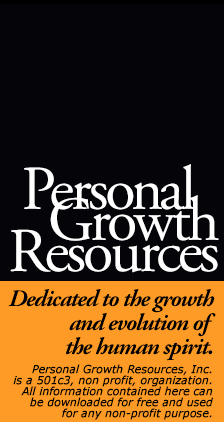|
Should You or Should You Not Become a Vegetarian? CONTINUED Susan M. Mumm, MA |
I was a full-time staff member at People’s Food Coop in Ann Arbor, Michigan, one of the larger stores in the country. The issue of whether PFC should remain vegetarian got quite heated, and the co-op decided it needed to draft a mission statement which would decide the issue of whether PFC was to remain vegetarian or not. It was first decided that the mission statement would not state that the co-op would be vegetarian because it endorsed the philosophy that it was morally wrong to kill animals; the majority of people thought this was too "Food Fascist." Furthermore, as education coordinator, I had to explain to the co-op board of directors that Peoples' Food Co-op actually already carried lots of products that involved the killing of animals. PFC was not a vegan co-op, ( I don’t think there were actually any vegan co-ops anywhere in the country), it was a lacto/ovo vegetarian co-op, meaning it sold eggs, yogurt, cheeses, milk, etc along with beans/grains/fruits//vegetables/nuts & seeds. To keep a dairy cow milking, you have to keep her pregnant. Fifty percent of the time she gives birth to a male calf, who is then sold to be raised for meat. Likewise, when a dairy cow’s milk production slackens, she is killed; dairy cows only live about 25% of the true lifespan of a cow. Egg-laying chickens are likewise killed when their egg production drops. In addition, 90% of cheese in the United States is made using animal rennet (a part of cow intestines) to coagulate the cheese. So, the reality is, if you don’t want to kill to eat, you have to be a vegan. Most people are so removed from food production that they have no idea of the killing involved in the production of the cheese or milk or eggs on their table. There was a strong component of co-op members who thought the Peoples’ Food Co-op should remain vegetarian for political reasons, as discussed above, a vegetarian diet saves energy and resources thereby freeing up more resources to address world hunger problems. As the education coordinator of Peoples Food Co-op, I was actually sent to Cornell University for a week to further discuss this issue of how much protein was lost in the conversion process of livestock. Well after discussing the issue with the head of the animal agriculture of Cornell University, I had to report back to the board of directors that it would make no sense for Peoples' Food Co-op to draft a mission statement that said it was vegetarian because of the political reasons of “food resources efficiency”. The reason being, chicken and pork actually have a better conversion ratio than dairy cows. The co-op was obviously not going to eliminate its full line of yogurts, chesses, milk, and all the products that contain dairy products. So, to make a long story short, Peoples Food Coop did not include a stipulation that it would remain vegetarian in its mission statement, and like most food co-ops around the country, it eventually began carrying organic chicken, beef, and pork and fish products as well. So, to return to the topic of this article, “Should You or Shouldn’t You Become a Vegetarian”, you should not become a vegetarian because you do not believe in killing animals to eat, unless you intend to become a vegan, because there is significant killing involved in the production of lacto/ovo vegetarian foods. Likewise, you should not become a vegetarian to save planetary food resources unless you intend to become a vegan because chicken meant is more resource efficient than dairy products. As it turned out, I only remained a vegan for about a year. Though philosophically I wanted to be a vegan after learning how many food resources were wasted in converting the grains and beans feed to livestock to produce meat, I just did not have the self-discipline to live without so many of the foods I had grown up eating. I have no problem eating vegan dishes a few times a week but I just can’t handle the deprivation involved 365 days per year. I can still vividly remember how elated I was the first time I again allowed myself to eat some pumpkin pie with whipped cream, or to have bleu cheese on my salads, or to eat turkey at Thanksgiving dinner. Some vegans I know really do not seem to miss eating dairy products and some lacto/ovo vegetarians I know do not seem to miss eating meat. But I was miserable being a vegan. So, from my personal experiences, I think that whether or not you experience giving up meat or dairy/eggs as significant deprivation should play into your decision of whether to become a vegetarian. For some people, (myself included) food is a huge component of their happiness. < Previous Next > |
This site owned and operated by: Susan M. Mumm, MA, Licensed Professional Counselor
info@personalgrowthresources.org | Personal Growth Resources, Inc. | Ann Arbor, MI | (734) 913-5859
